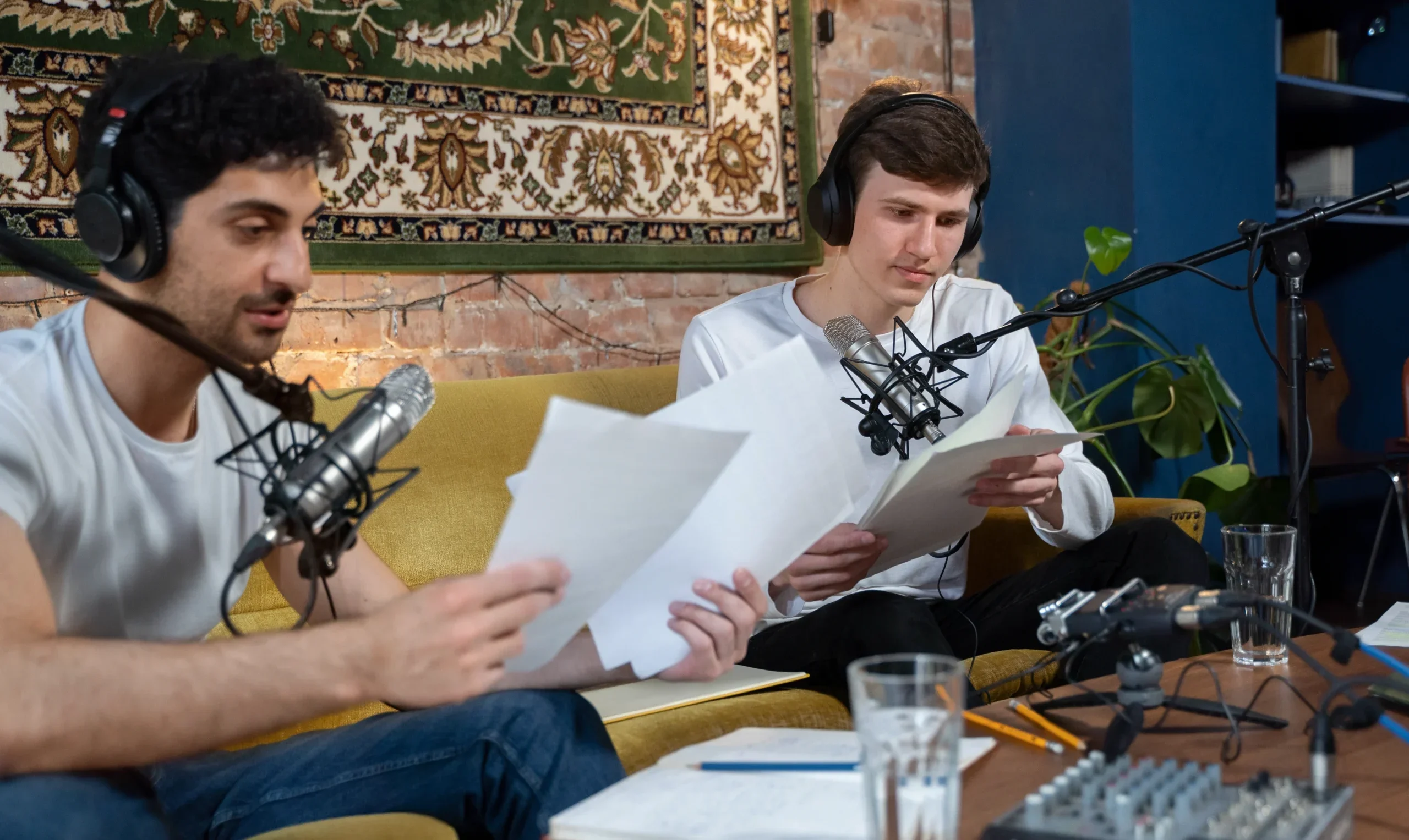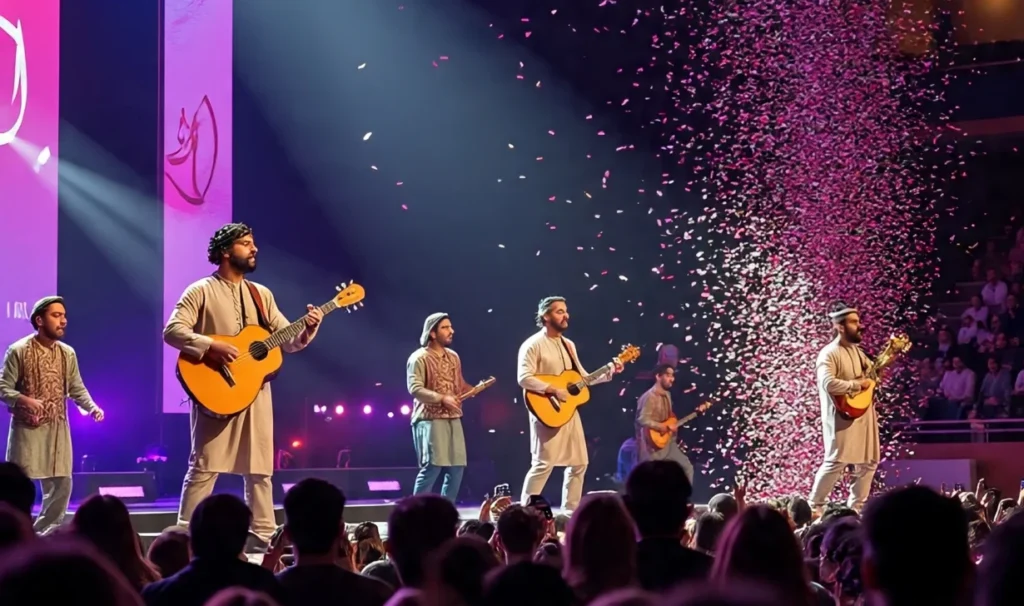Khaleeji Trap & Podcast Renaissance Identity in Sound
By Hafsa Qadeer


It begins with a beat. A slow, low hum laced with oud samples and a hint of auto-tune. Then comes the voice, half Arabic, half English, fully rooted in the Gulf. This is not just music. It’s a movement. Across the UAE and its sister states, Khaleeji Trap has erupted from underground playlists into cultural currency. It’s a sound stitched from contradictions, ancestral rhythms layered with synths, verses that glide between dialect and diaspora. More than sonic fusion, it’s the language of a generation negotiating heritage and modernity, past and platform.
And they’re not just rapping. They’re podcasting. From the souqs of Sharjah to studios in Alserkal, a renaissance is underway, bilingual podcasts that dissect identity, comedy series that blur satire and sociology, and deep-dive interviews where creators unravel what it means to be Khaleeji in a hyperconnected, hyper-curated world. It’s sound, yes. But it’s also self-definition.
In this new audio frontier, platforms are stages. Spotify charts feature Emirati rappers who once uploaded demos on Telegram. Apple Podcasts recommends Gulf hosts once told their voices weren’t “marketable.” TikTok, ironically, has become the place where long-form thoughts first go viral, one clipped mic at a time.
What distinguishes this renaissance is its rootedness. The artists don’t mimic Western flows, they morph them. A track might open with the maqam of a Nabati poem, then dive into trap drums. A podcast episode might feature a mother’s folk song alongside a debate about Gulf futurism. Sound is no longer background. It’s a battleground for belonging. And the youth are curating their identities one track, one episode at a time.
In Dubai’s music studios and Riyadh’s coffee podcasters’ corners, Khaleeji creatives aren’t just shaping a trend. They’re archiving emotion. Displacement, pride, love, rebellion, all wrapped in verses and voice memos. Some drop EPs. Others drop truth bombs in 15-minute rants. There’s an urgency here. Not just to be heard, but to define who gets to narrate the region’s story. This is not mimicry. This is a reclamation of rhythm. The Gulf’s youth aren’t waiting to be invited to global stages. They’re building their own, with beats, bandwidth, and a mic.
And the world is finally listening.



